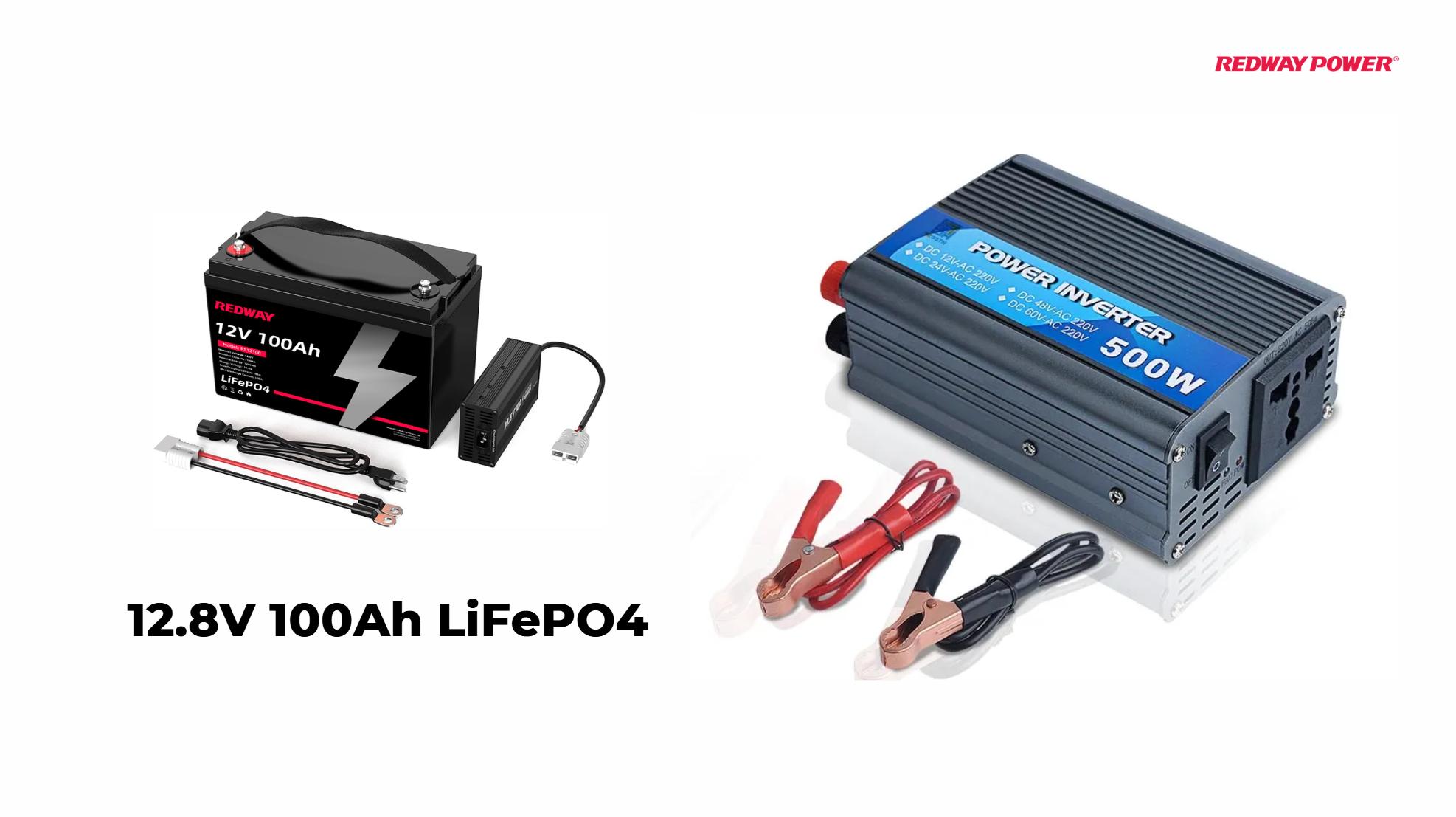When powering a 500W inverter with a 100Ah battery, the expected runtime is approximately 1.76 hours, assuming an inverter efficiency of around 90% and accounting for usable capacity, which varies between battery types.
How Long Will a 100Ah Battery Last with a 500W Inverter?
A 100Ah battery can last about 1.76 hours when powering a 500W inverter, assuming an inverter efficiency of around 90%. This runtime calculation considers both usable capacity and power draw from the inverter.
| Parameter | Value |
|---|---|
| Total Capacity | 100Ah |
| Usable Capacity (Lead-Acid) | Approximately 600Wh (50% DOD) |
| Usable Capacity (Lithium) | Approximately 900Wh (90% DOD) |
| Load | 500W |
| Estimated Runtime (Lead-Acid) | ~1.2 hours |
| Estimated Runtime (Lithium) | ~1 hour |
What Factors Affect Battery Runtime with an Inverter?
Several factors influence how long a battery will last when connected to an inverter:
Wholesale lithium golf cart batteries with 10-year life? Check here.
- The type of battery used (lead-acid vs lithium).
- The efficiency rating of the inverter.
- The ambient temperature affecting battery performance.
- The actual load connected to the inverter.
How to Calculate Battery Runtime for Inverters?
To calculate runtime, use this formula:
For example, if using a lead-acid battery with approximately 600Wh usable capacity at a load of 500W:
Want OEM lithium forklift batteries at wholesale prices? Check here.
What is the Usable Capacity of a 100Ah Battery?
The usable capacity depends on the type of battery:
- For lead-acid batteries, it is typically recommended to use only up to 50% of their capacity, resulting in about 600Wh usable energy.
- For lithium batteries, you can use up to approximately 90%, yielding about 900Wh.
How Does Inverter Efficiency Impact Battery Life?
Inverter efficiency plays a crucial role in determining how long your battery will last:
- A typical inverter operates at about 85-90% efficiency.
- If your inverter is less efficient, more energy is wasted as heat, reducing overall runtime.
What Are the Typical Applications for a 500W Inverter?
A 500W inverter is suitable for powering various small appliances and devices, including:
- Laptops
- Small kitchen appliances like blenders or coffee makers
- LED lights and other low-power electronics
How to Maximize Battery Life When Using an Inverter?
To maximize battery life:
- Avoid deep discharges; keep within recommended usage limits.
- Use high-efficiency inverters.
- Monitor load levels and avoid exceeding capacity.
What Are the Differences Between Lead-Acid and Lithium Batteries?
Lead-acid batteries are generally cheaper but have lower cycle life and efficiency compared to lithium batteries:
- Lead-acid: Typically have lower usable capacity and shorter lifespan.
- Lithium: Higher upfront cost but longer lifespan and greater depth of discharge.
What Is the Impact of Temperature on Battery Performance?
Temperature significantly affects battery performance:
- Cold temperatures can reduce capacity and increase internal resistance.
- High temperatures may accelerate degradation but can also temporarily increase performance.
How Do Surge Loads Affect Battery Runtime?
Surge loads are brief spikes in power demand when devices start up:
- These can exceed normal operating power levels and may require more energy than anticipated, affecting overall runtime calculations.
Can I Use Multiple Batteries to Extend Runtime?
Yes, connecting multiple batteries in parallel can extend runtime:
- Ensure they are of the same type and capacity for optimal performance.
Expert Views
“Understanding how to calculate runtime based on load and battery specifications is crucial for anyone relying on portable power systems,” states an energy systems expert. “By optimizing your setup with efficient inverters and appropriate battery types, you can significantly enhance performance and longevity.”
FAQ Section
- How long can I run my devices on a fully charged 100Ah battery with a 500W inverter?
With proper calculations, expect about 1.76 hours depending on your inverter’s efficiency. - Does temperature affect how long my battery lasts with an inverter?
Yes, extreme temperatures can impact both performance and longevity. - Is it better to use lead-acid or lithium batteries with an inverter?
Lithium batteries offer better efficiency and longer lifespans but come at a higher cost compared to lead-acid batteries.
What Size Inverter for 100Ah Battery






